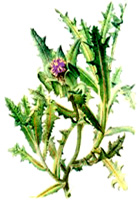
By ANDREW JACOBS
Published: May 3, 2008
BEIJING — A fast-spreading viral outbreak in China has killed 22 children, sickened nearly 3,600 others and caused panic among parents in an impoverished corner of Anhui Province, government health officials said Friday.
Published: May 3, 2008
BEIJING — A fast-spreading viral outbreak in China has killed 22 children, sickened nearly 3,600 others and caused panic among parents in an impoverished corner of Anhui Province, government health officials said Friday.
All of the fatalities, from lung problems and other complications, have been in children younger than 6, with a majority of them under 2.
The outbreak, caused by a particularly strong intestinal virus, enterovirus 71, or EV-71, has been spreading in the city of Fuyang, in east-central China, since early March. Provincial health officials, however, announced the outbreak only this week, raising questions about whether they had been trying to conceal it.
In recent days the Chinese media have heavily criticized the local government response, offering comparisons to the SARS epidemic of 2003, which drew widespread attention to China’s shaky public health system and official attempts to cover up the outbreak. Xinhua, the official news agency, published the latest figures on Friday.
On Thursday, the World Health Organization warned that the disease, which thrives in warm weather and passes easily among children, could spread in the coming summer months. It advised child care centers and schools in the city and surrounding region to stay closed until the spread was curtailed.
The virus begins with a fever and often leads to mouth ulcers and to blisters on the hands, feet and buttocks. Commonly known as hand, foot and mouth disease, it has no relation to the foot-and-mouth disease that infects livestock.
There is no vaccine or cure, but most patients recover in a week without treatment. In severe cases, brain swelling can lead to paralysis or death. Cleaning surfaces with bleach and washing hands significantly reduces the spread of the pathogen.
Health officials in Fuyang said more than 970 children remained hospitalized, 48 of them in critical condition. Health officials said the disease also spread to three adjacent provinces, with the bulk of them — 340 cases — in Hubei.
Although the number of infected children has been steadily climbing, the fatality rate has dropped substantially in recent weeks, falling to 0.2 percent from 11 percent in March, World Health Organization officials say.
Anxious parents have been overwhelming local hospitals in Fuyang. In a telephone interview, a doctor at No. 2 People’s Hospital said 200 sick children were being treated there. He said Friday that there had not been any fatalities in the past five days at the hospital. “I think the disease itself can be controlled, but it is hard to treat if there are complications,” said the doctor, who would give only his surname, Li.
Among parents, though, there is still widespread concern and confusion. Reached by phone, the father of a 1-year-old boy from a town outside Fuyang said misinformation was rife. The current rumor, he said, suggested that a local river was the source of the infection. The man, a truck driver named Wang, said that schools had been closed and that local health officials were instructing parents to frequently wash their children’s hands. “We really hope journalists can come and report more on this,” he said.
Since early April, teachers at the Dongfanghong kindergarten in Fuyang have been assiduously keeping the children clean and spraying the classrooms with a disinfectant daily. Still, by Tuesday, when the authorities closed the school, nearly 100 of the school’s 500 students were being kept home by their parents. “A lot of parents are concerned about the contagiousness,” said Xu Yanyan, the headmistress.
Four years ago Fuyang was the epicenter of a powdered milk scandal. Fake formula lacking nutritional value sickened 200 infants, and 13 of them starved to death.
The Chinese media have not been shy about criticizing local officials who suppress information about infectious diseases and other kinds of bad news. In mid-April, several media outlets noted, authorities in Fuyang who were confronted by reporters denied that there was a problem. Two weeks later, after more than a dozen children had died, they were forced to acknowledge the outbreak.
In an editorial headlined “Tragic Costs of Delay,” China Daily, the official English-language newspaper, cited the SARS epidemic and the powdered milk scandal and chastised government for its sluggish response to the most recent health crisis. “The memory of the last tragedy only adds to the bitterness of the new one,” it said.
During the SARS outbreak, Chinese officials withheld information from the World Health Organization, restricted media reporting and undercounted the cases of those stricken. After the disease spread beyond China’s borders and provoked worldwide panic, the government pledged to confront future health emergencies with greater openness.
Huang Yuanxi contributed research.
The outbreak, caused by a particularly strong intestinal virus, enterovirus 71, or EV-71, has been spreading in the city of Fuyang, in east-central China, since early March. Provincial health officials, however, announced the outbreak only this week, raising questions about whether they had been trying to conceal it.
In recent days the Chinese media have heavily criticized the local government response, offering comparisons to the SARS epidemic of 2003, which drew widespread attention to China’s shaky public health system and official attempts to cover up the outbreak. Xinhua, the official news agency, published the latest figures on Friday.
On Thursday, the World Health Organization warned that the disease, which thrives in warm weather and passes easily among children, could spread in the coming summer months. It advised child care centers and schools in the city and surrounding region to stay closed until the spread was curtailed.
The virus begins with a fever and often leads to mouth ulcers and to blisters on the hands, feet and buttocks. Commonly known as hand, foot and mouth disease, it has no relation to the foot-and-mouth disease that infects livestock.

There is no vaccine or cure, but most patients recover in a week without treatment. In severe cases, brain swelling can lead to paralysis or death. Cleaning surfaces with bleach and washing hands significantly reduces the spread of the pathogen.
Health officials in Fuyang said more than 970 children remained hospitalized, 48 of them in critical condition. Health officials said the disease also spread to three adjacent provinces, with the bulk of them — 340 cases — in Hubei.
Although the number of infected children has been steadily climbing, the fatality rate has dropped substantially in recent weeks, falling to 0.2 percent from 11 percent in March, World Health Organization officials say.
Anxious parents have been overwhelming local hospitals in Fuyang. In a telephone interview, a doctor at No. 2 People’s Hospital said 200 sick children were being treated there. He said Friday that there had not been any fatalities in the past five days at the hospital. “I think the disease itself can be controlled, but it is hard to treat if there are complications,” said the doctor, who would give only his surname, Li.
Among parents, though, there is still widespread concern and confusion. Reached by phone, the father of a 1-year-old boy from a town outside Fuyang said misinformation was rife. The current rumor, he said, suggested that a local river was the source of the infection. The man, a truck driver named Wang, said that schools had been closed and that local health officials were instructing parents to frequently wash their children’s hands. “We really hope journalists can come and report more on this,” he said.
Since early April, teachers at the Dongfanghong kindergarten in Fuyang have been assiduously keeping the children clean and spraying the classrooms with a disinfectant daily. Still, by Tuesday, when the authorities closed the school, nearly 100 of the school’s 500 students were being kept home by their parents. “A lot of parents are concerned about the contagiousness,” said Xu Yanyan, the headmistress.
Four years ago Fuyang was the epicenter of a powdered milk scandal. Fake formula lacking nutritional value sickened 200 infants, and 13 of them starved to death.
The Chinese media have not been shy about criticizing local officials who suppress information about infectious diseases and other kinds of bad news. In mid-April, several media outlets noted, authorities in Fuyang who were confronted by reporters denied that there was a problem. Two weeks later, after more than a dozen children had died, they were forced to acknowledge the outbreak.
In an editorial headlined “Tragic Costs of Delay,” China Daily, the official English-language newspaper, cited the SARS epidemic and the powdered milk scandal and chastised government for its sluggish response to the most recent health crisis. “The memory of the last tragedy only adds to the bitterness of the new one,” it said.
During the SARS outbreak, Chinese officials withheld information from the World Health Organization, restricted media reporting and undercounted the cases of those stricken. After the disease spread beyond China’s borders and provoked worldwide panic, the government pledged to confront future health emergencies with greater openness.
Huang Yuanxi contributed research.


No comments:
Post a Comment